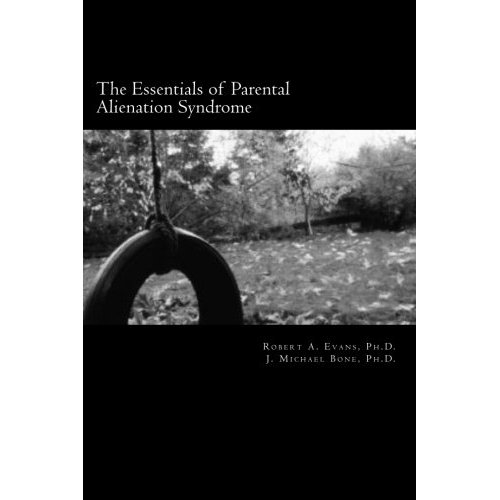Is hiring an expert worth it in family law cases involving parental alienation? (Part 3)
This series of articles was introduced with:
 Sometimes rejected (alienated) parents and their attorneys consider hiring an expert to help in their cases. Experts can take a variety of roles and one of these is that of giving instructional testimony. Experts are generally not inexpensive so parents want to know how effective experts in the cases involving alienation may be.
Sometimes rejected (alienated) parents and their attorneys consider hiring an expert to help in their cases. Experts can take a variety of roles and one of these is that of giving instructional testimony. Experts are generally not inexpensive so parents want to know how effective experts in the cases involving alienation may be.
The effectiveness of an expert in these cases depends on a number of factors, some of which include the:
- Court
- Favored Parent
- Expert
Court
In presenting a case to the court the attorney representing the rejected parent can ask the consulting expert a number of questions that are considered hypothetical but are based on the facts in the case. For example, questions might include (obviously there would be others):
- “What is parent alienation?”
- “What is the difference between estrangement and alienation?”
- “What would constitute a significant parental deficiency in order for a child to reject a parent?”
- “By all appearances a child is observed to have an extremely close bonded relationship with a parent, why would a court order that child to be with the ‘rejected’ parent?
Given this sample of questions, what might an expert consultant’s response look like?
Question: “What is parent alienation?”
Answer: Parent alienation is a disorder, typically discovered during divorce cases that are frequently of high conflict where a child or children reject a parent for no apparent valid reasons. Parent alienation includes behavior by an alienating or favored parent as well as observable behaviors in the child or children. Observable or documented behaviors can include visitation blocking or gatekeeping even to the extent of ignoring court orders to facilitate time-sharing. You may find the favored parent sharing legal documentation with the child that would substantiate the reasons the rejected parent should be avoided. Some favored parents may even threaten to punish the child if they express a desire to be with the rejected parent. Such punishment might include sending them to live with the rejected parent who is a “known” child abuser; a very frightening prospect to the child who has been taught to be afraid of the rejected parent.
Question: “What is the difference between Estrangement and Alienation?”
Answer: The literature is just now beginning to define terminology so there is a standard way of discussing these concepts. Estrangement is becoming recognized as a child rejecting a parent for valid or justifiable reasons, while Alienation, as present above, is a child’s rejection in the absence of valid or justifiable reasons.
Question: “What would constitute a significant parental deficiency in order for a child to reject a parent?”
Answer: The difficulty we have is that there is no criteria to define what are valid or justifiable reasons for the rejection. Dr. Richard Gardner was once asked what it would take for a child to be justifiably estranged from a parent. His response was something along the lines that the mistreatment would have to be unimaginably severe. We know now, from decades of research with attachment theory, that the parent-child bond is virtually unbreakable. Even in cases of documented, repeated, physical abuse children and then later as grown adults they will either maintain or seek out those parents. The human parent-child attachment is essentially a biologically innate survival mechanism and while no one wants to say never, it is virtually indestructible. So when an expert is presented with a case fact of a parent drinking a beer, or disciplining a child, or using fowl language during visitation and that’s why a child is rejecting him or her, the expert has to demonstrate how those behaviors would break that innate parent-child relationship. Obviously it would take more than that; a lot more. In severe abuse cases some individuals seek some kind of closure with the abusing parent even if they do not continue a close relationship. A tribute to virtual permanent parent-child bond.
Question: “By all appearances a child is observed to have an extremely close bonded relationship with a parent, why would a court order that child to be with the ‘rejected’ parent?
Answer: When we have evidence that there is Parental Alienation present in a case and it can be described as being at a severe level, typically you will observe an enmeshed favored parent-child relationship. That is, to most observers the favored parent and child will appear to have an extremely close bonded relationship. However, in many extremely bonded relationships one may find the relationship is enmeshed. Enmeshed relationships were introduced by Salvador Minuchen in the mid-1970s. In such relationships, there is little autonomy or personal boundaries. Each family member can have an identified role, such as a scapegoat, or hero, etc. Individuals who grow up in such families do not know how they really feel or what they want to do in their lives because they are encouraged to feel what the favored parent feels. They are consciously and subconsciously rigorously discouraged from having their own feelings and preferences. Enmeshed children will frequently feel shame which leads to depression, anxiety, alcoholism, drug abuse, eating disorders, compulsive gambling, sexual addiction and can include family violence.
In an enmeshed alienated family the favored parent is dependent on the child or children to make them happy and feel loved. Isolating the children from a rejected parent facilitates this pathological “nurturing” process. The children are discouraged from having a relationship with the other parent, from expressing their individuality and from expressing their life preferences outside the family. In most cases the children are not even knowledgeable that this process is going on. But the favored parent’s need to be needed and to be loved, to an extent that they keep the children emotionally and physically corralled.
These are just a few samples and examples of the types of questions and responses that can be used in cases where the consulting expert is instructing the court. If the court is listening a careful observer will notice that the judge is taking notes as the expert is speaking. Frequently, when the attorneys are finished with the examination and cross, the judge just might have some questions of his or her own. This is a very good sign that the court was listening and perhaps even open to the expert’s testimony.
For more information about the role of the court in cases involving Parental Alienation, read part one, and part two in this blog series.


